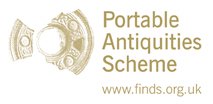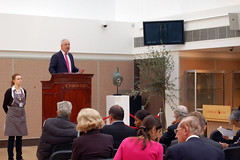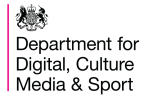Server check!
You are on the training database
Advice for people buying archaeological objects from the UK
Five things to ask
- Have you legal title to sell?
- Where was the object found?
- When was the object found?
- Was there a legal obligation to report the find?
- Has the object been recorded?
Ask - have you legal title to sell?
With the exception of Treasure finds all archaeological finds found in England , Wales or Northern Ireland are normally the property of the landowner. If the object has been recently discovered and the person selling the object is the finder, then they will need to have the permission of the landowner on whose land the object was found before they can sell it.
In Scotland there is a legal obligation to report all archaeological objects under Treasure Trove. All objects belong to the Crown, unless disclaimed.
If the person selling the object is not the finder or landowner, then can you satisfy yourself that they have legal title to sell? It is a good idea to ask the seller to sign a statement verifying their account of the item's provenance and their legal title to sell. Ask for a copy of all appropriate documentation if there was a legal obligation to report the find.
Ask - where was the object found?
There is a legal obligation to report archaeological finds found in England , Wales or Northern Ireland that qualify as Treasure. Non-Treasure finds found in England or Wales may have been recorded with the Portable Antiquities Scheme (a voluntary scheme to record archaeological objects found by the public) and therefore documentation may exist to show where an object was reported as being found and whether it has been properly recorded.
There has been a legal obligation to report the discovery of all archaeological objects found in Northern Ireland since 1926 (restated in the Historic Monuments and Archaeological Objects (Northern Ireland) Order 1995). It is also an offence to excavate any land while searching for archaeological objects without a licence, which requires appropriate reporting of all archaeological findings. Northern Ireland finds should not be purchased without appropriate documentation proving that they have been reported.
There is a legal obligation to report all archaeological finds found in Scotland under Treasure Trove. Scottish finds should not be purchased without documentation proving that they have been disclaimed.
If the object was found outside the UK then you need to know whether it has been imported legally. Ask for documentation to prove this. Most countries have very tough export laws and will not allow archaeological material to be exported.
All UK archaeological objects found in the ground and at least 50 years old need an Export Licence before they can be sent overseas. If you live abroad and wish to buy an object found in the UK ask for a copy of the Export Licence. For further information contact the Export Licensing Team.
Ask - when was the object found?
For finds found in England or Wales it is important to know when the object was found. All finds of gold or silver found before 24 September 1997 should have been reported as Treasure Trove. All Treasure finds found after that date should have been reported under the Treasure Act 1996.
In Scotland there is a legal obligation to report all archaeological finds, no matter when they were found. Likewise in Northern Ireland there is the legal requirement to report all archaeological finds found after 1926.
Ask - was there a legal obligation to report the find?
In England and Wales there is a legal obligation to report Treasure finds: under Treasure Trove if found before 24 September 1997 or under the Treasure Act 1996 if found after that date. Only Treasure finds that have been disclaimed on behalf of the Crown can be legally sold, so ask to see proof that the find was disclaimed (i.e. the Crown Disclaimer). Most gold and silver objects (and some other classes of finds) found in England and Wales should have been reported Treasure, even if the seller says they 'come from an old collection'!
If there is any doubt whether an object has been reported Treasure or not then it is best to contact the Treasure Section at the British Museum for English finds or the National Museum of Wales for Welsh finds.
In Scotland there is a legal obligation to report all archaeological finds Treasure Trove (see further information ). Only disclaimed finds can be legally acquired. When buying archaeological material you should ask to see the appropriate disclaimer certificate. For further information and advice contact the Treasure Trove Secretariat at the National Museums of Scotland (see contacts).
In Northern Ireland there is a legal obligation to report the discovery of all archaeological finds and these should not be purchased without proof that the discovery has been reported. For further information and advice contact the Environment and Heritage Service , Northern Ireland (see contacts).
It is also illegal to metal detect on, or remove any archaeological finds from, a Scheduled Ancient Monument without the permission of English Heritage (in England), the Environment & Heritage Service (in Northern Ireland), Historic Scotland (in Scotland) or Cadw (in Wales). In Northern Ireland it is illegal even to be in possession of a metal-detector on a scheduled or State Care site without permission. You should not buy finds removed from such sites!
Ask - has the object been recorded?
In England and Wales the Portable Antiquities Scheme is a voluntary scheme to record archaeological objects found by the public. Whilst therefore there is no legal obligation to record finds with the Scheme, finders who do so are adding to our understanding of the past. It is current UK Government advice that finders of all archaeological objects (found in England and Wales) should have them reported and recorded. Contact your local Finds Liaison Officer for more information (see contacts ).
In Scotland there is a legal obligation to report all finds of archaeological objects under Treasure Trove. Finds may be recorded, even if they are disclaimed.
In Northern Ireland as well as the legal obligation to report all discoveries of archaeological objects, such objects may be held by the Environment & Heritage Service or the Ulster Museum for up to 3 months to permit proper examination and recording, after which they are returned to the depositor.
If a seller can not satisfactorily answer all or any of these questions or you have doubts whether an object is illicit or not then our advice is do not buy!
Further information
Treasure Trove
All finds discovered in England , Wales and Northern Ireland before 24 September 1997 were subject to the Common Law of Treasure Trove. Treasure Trove was defined as gold and silver objects, which had been deliberately hidden with the intention of recovery and where the original owner/s or heirs are unknown.
Under arrangements established in 1886 finders of Treasure who acted properly and lawfully by reporting their finds and handing over anything they had found to their local Coroner received a reward (based on the market value of the find) if any items were retained by a museum. Otherwise the finds were disclaimed and returned to the finder.
In Scotland all newly discovered archaeological objects, whether they are precious metal or not and regardless of whether they were hidden or lost, belong to the Crown under the legal principle of bona vacantia . All items which are claimed under Treasure Trove are allocated specifically to museums within Scotland and the finder receives a reward. Otherwise finds are disclaimed and returned to the finder.
Treasure Act 1996 and Treasure (Designation) Order 2002: Since 1997 the Common Law of Treasure Trove has been replaced by the Treasure Act 1996 in England , Wales and Northern Ireland . Under the Act, extended by the Treasure (Designation) Order 2002, the following finds are Treasure, if found after 24 September 1997 (or, in the case of category 2, if found after 1 January 2003 ):
- Any metallic object, other than a coin, provided that at least 10 per cent by weight of metal is precious metal (that is, gold or silver) and that it is at least 300 years old when found. If the object is of prehistoric date it will be Treasure provided any part of it is precious metal.
- Any group of two or more metallic objects of any composition of prehistoric date that come from the same find (see below)
- Two or more coins from the same find provided they are at least 300 years old when found and are composed of at least 10 per cent gold or silver (but if the coins contain less than 10 per cent of gold or silver there must be at least ten of them). Only the following groups of coins will normally be regarded as coming from the same find: (a) hoards that have been deliberately hidden, (b) smaller groups of coins, such as the contents of purses, that may been dropped or lost, and (c) votive or ritual deposits.
- Any object, whatever it is made of, that is found in the same place as, or had previously been together with, another object that is Treasure.
- Any object that would previously have been Treasure Trove, but does not fall within the specific categories given above. Only objects that are less than 300 years old, that are made substantially of gold or silver, that have been deliberately hidden with the intention of recovery and whose owners or heirs are unknown will come into this category. Note: An object or coin is part of the 'same find' as another object or coin if it is found in the same place as, or had previously been together with, the other object. Finds may have become scattered since they were originally deposited in the ground.
Law enforcement
Treasure Act 1996: There is a legal obligation for all finders of Treasure to report these to a coroner within 14 days of making the find, or realising the find was Treasure. Penalty: imprisonment for up to 3 months and/or a fine up to £5,000.
Dealing in Cultural Object (Offences) Act 2003: It is illegal to knowingly sell, buy or deal in tainted cultural objects (objects of historical, architectural or archaeological interest) illegally excavated or removed after 30 December 2003 . Penalty: imprisonment for up to 7 years and/or an unlimited fine (in the Crown Court).
The Theft Act 1968 and Trespass may also be applicable.
Contacts
England: Portable Antiquities Scheme & Treasure Section, British Museum , London , WC1B 3DG. Tel: 0207 323 8546/8611.
Wales: National Museums & Galleries of Wales , Cathays Park , Cardiff , CF10 3NP. Tel: 02920 573226.
Scotland: Treasure Trove Secretariat, National Museums of Scotland , Chambers Street , Edinburgh , EH1 1JF. Tel: 0131 247 4082/4355.
Northern Ireland: Environment & Heritage Service, Waterman House, 5-33 Hill Street , Belfast , BT1 2LA. Tel: 028 9054 3034.
Export Licences: Export Licensing Unit, Arts Council England, 14 Great Peter Street , London , SW1P 3NQ . Tel: 0207 793 5188.



